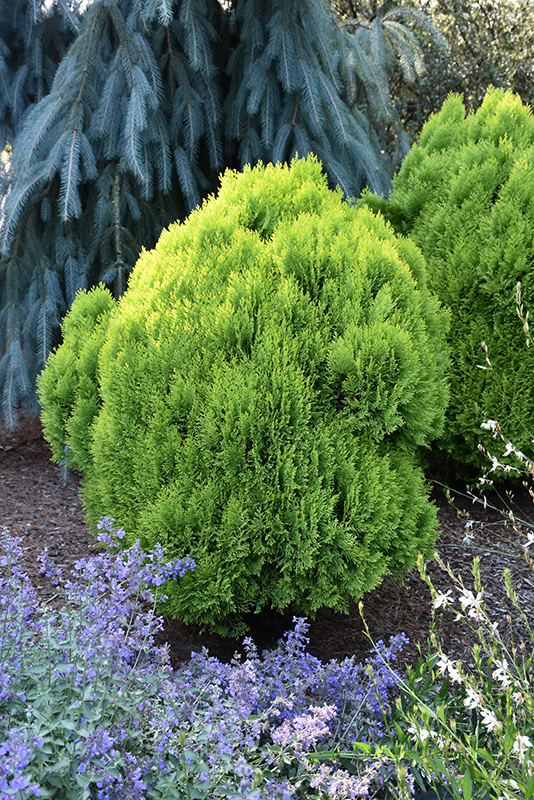>> Home
Morgan Oriental Arborvitae
Thuja orientalis 'Morgan'
Height: 4 feet
Spread: 4 feet
Sunlight:
![]()
![]()
Hardiness Zone: 6
Other Names: Platycladus orientalis
Description:
This variety produces wonderful sprays of chartreuse new foliage set atop darker green older foliage; puts on a dramatic winter show when the outer edges of the plant turn a rusty bronze color; makes a great garden accent or low hedge
Ornamental Features
Morgan Oriental Arborvitae is a dwarf conifer which is primarily valued in the landscape or garden for its decidedly oval form. It has rich green evergreen foliage which emerges chartreuse in spring. The scale-like sprays of foliage turn coppery-bronze in the fall, which persists throughout the winter. The shaggy antique red bark adds an interesting dimension to the landscape.
Landscape Attributes
Morgan Oriental Arborvitae is a dense multi-stemmed evergreen shrub with a shapely oval form. Its relatively fine texture sets it apart from other landscape plants with less refined foliage.
This is a relatively low maintenance shrub. When pruning is necessary, it is recommended to only trim back the new growth of the current season, other than to remove any dieback. It has no significant negative characteristics.
Morgan Oriental Arborvitae is recommended for the following landscape applications;
- Accent
- Mass Planting
- Hedges/Screening
- General Garden Use
Planting & Growing
Morgan Oriental Arborvitae will grow to be about 4 feet tall at maturity, with a spread of 4 feet. It has a low canopy with a typical clearance of 1 foot from the ground. It grows at a slow rate, and under ideal conditions can be expected to live for 70 years or more.
This shrub does best in full sun to partial shade. It is very adaptable to both dry and moist locations, and should do just fine under average home landscape conditions. It may require supplemental watering during periods of drought or extended heat. It is not particular as to soil type or pH. It is somewhat tolerant of urban pollution, and will benefit from being planted in a relatively sheltered location. This is a selected variety of a species not originally from North America.
